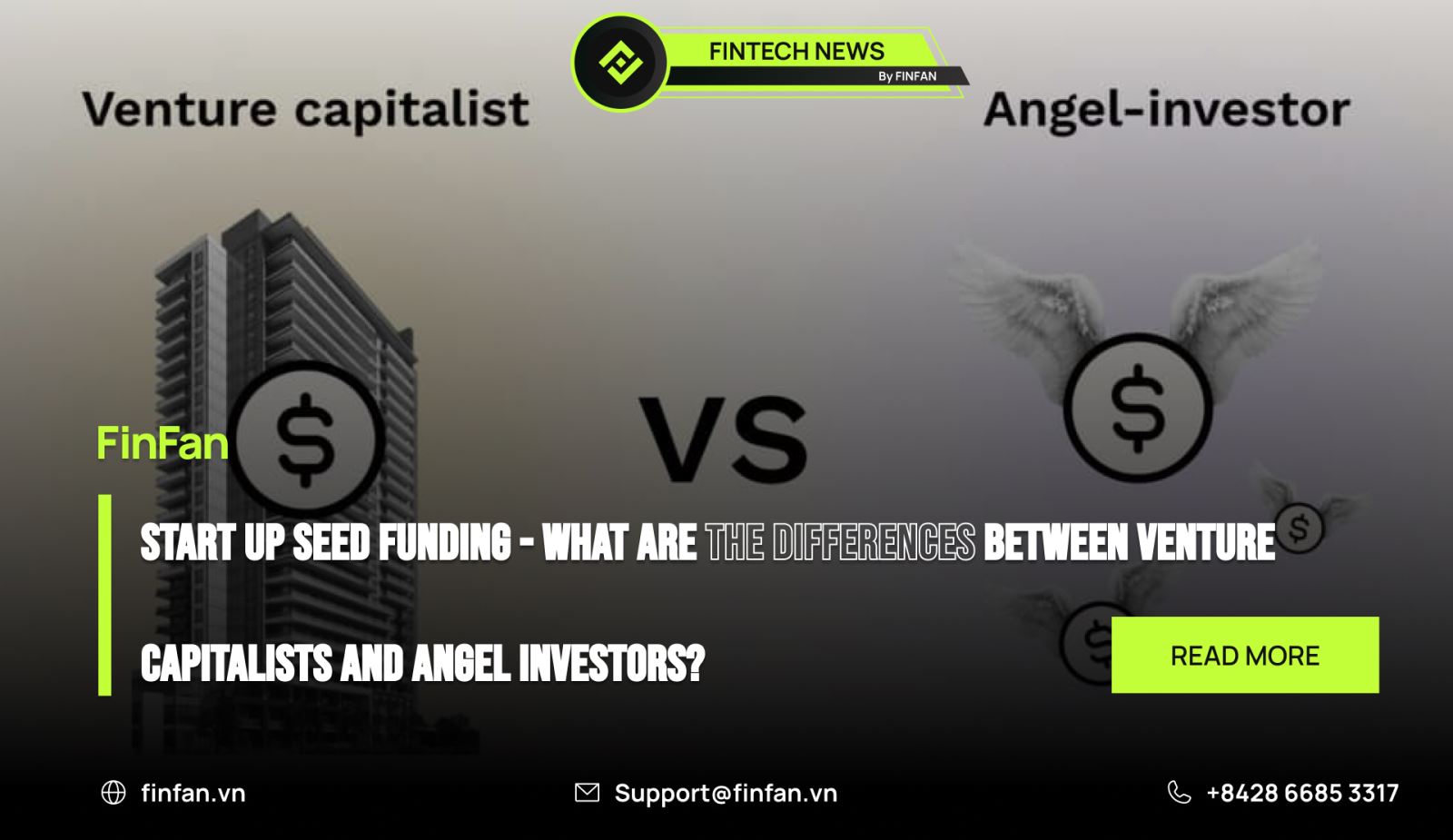Startup seed funding – What are the differences between Venture Capitalists and Angel Investors?

Investing in startups is always an investment method that brings huge risks for investors. Therefore, in order to survive with this investment method, investors must have extensive knowledge of finance as well as the field in which they put their money.
At the same time, startup investors must also be a companion and spiritual fulcrum for founders in the process of developing their companies.
So, between two types of investors angel investors and venture capitalists, which is the better option that founders should choose for their startups? Let’s find out in this article.
Who is an angel investor?
An Angel investor is an individual or individuals who use their own money to invest in startups. They always appear at the early stage (pre-seed and seed funding) of startups’ growing journey where these guys could be advisors for startups at the beginning of the development road.
Usually, angel investors are individuals who have a net worth of up to 1 - 2 million US dollars and are willing to spend from 25,000 to 100,000 US dollars to invest in a startup they love. A goal of angel investors is to group as many investors together as possible to form a syndicate into a single investment operation that averages $750,000 or more.
Who is a venture capitalist?
A venture capitalist is a negotiating agent (general partner) for a venture capital fund, they are assigned an investment budget of somewhere between $2-7 million on average by the limited partners for an investment in a startup by diverging investments based on the startup's performance.
In most cases, the venture capitalists will accompany the company from the seed funding stage to the IPO stage or be acquired by the market giants.
For that reason, venture capitalists often have the responsibility as a mentor of startups when they have a very deep knowledge of the startup's finance and industry.
The differences between angel investors and venture capitalists
Although they are the same individuals who seal with startups on investment deals and also support startups in the early stages of businesses (pre-seed and seed funding), angel investors and venture capitalists have distinct differences:
|
|
Angel investors |
Venture capitalists |
|
Investment scale |
|
|
|
Legal responsibility |
|
|
|
Responsibility for startups |
|
|
|
Due diligence |
|
|
When do startups need the investment of angel investors and venture capitalists?
Today, many founders confuse and abuse the term “startup” for their business. The difference between a startup and an SME comes from its ability to scale (not just in terms of revenue and profit).
Sometimes the success of a startup comes from capturing a large market share of a certain field, such as Shopee or Lazada. Although they are very successful startups, they still report annual revenue losses of thousands of billions of dongs in Vietnam.
Therefore, if neither your startup's ability to scale up is large enough to occupy a mass market (where anyone can use your product or service), nor your startup’s solution has been able to help solve customers' problems in a faster, more convenient way (as in the case of e-commerce that has changed the shopping habits of consumers, or technology motorbike has changed habits of motorbike taxi ride), then the business is still called an SME.
In the above case, both startups and SMEs need the investment of angel investors. After that SMEs will develop on their own in the later stage without calling for additional capital.
On the other hand, startups will need advice from mentors (maybe venture capitalists) to get the most optimal development plan for their business (maybe not just based on the revenue and profit they will be able to take) so that they can get into the next funding rounds with a higher valuation.